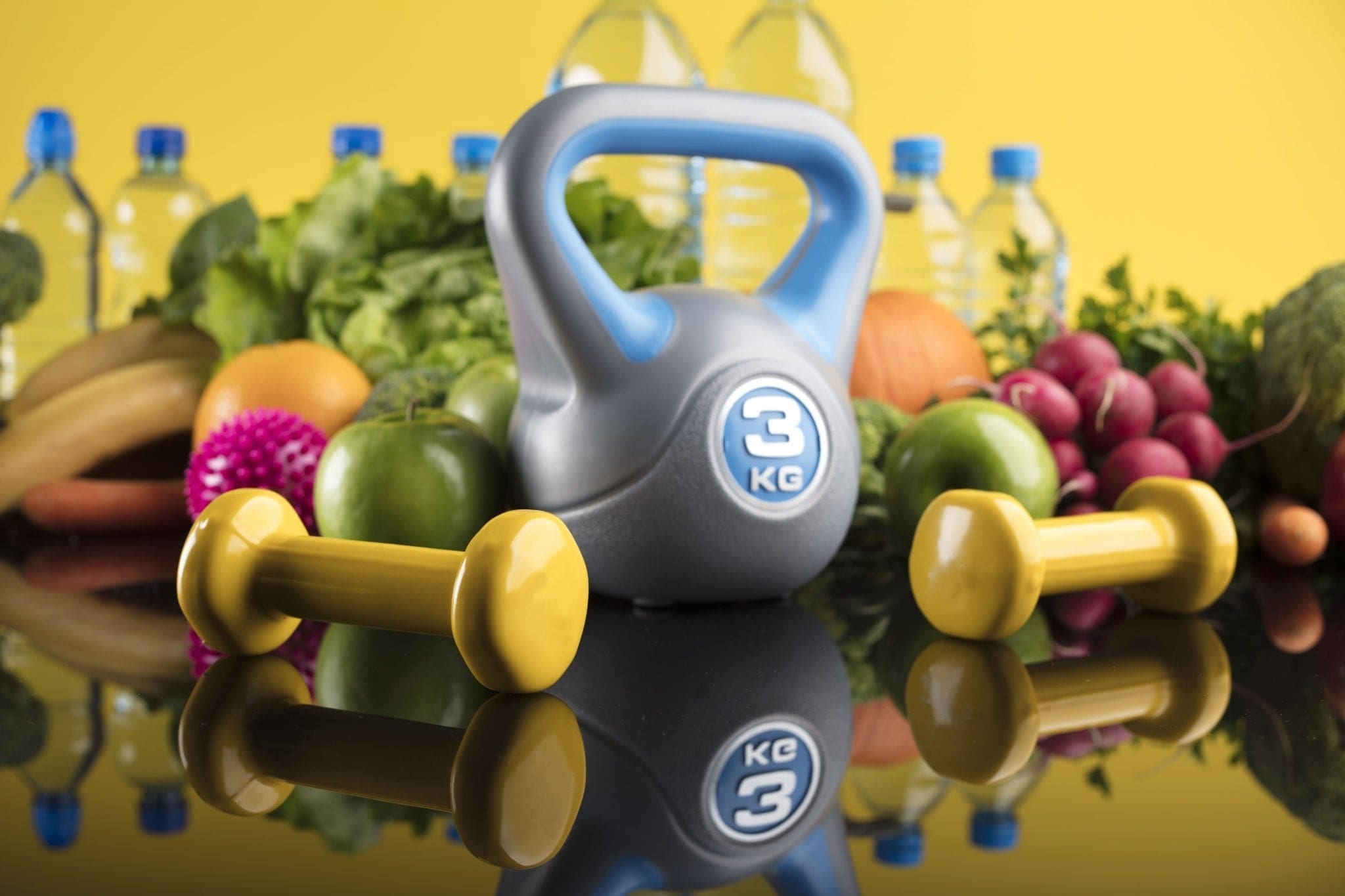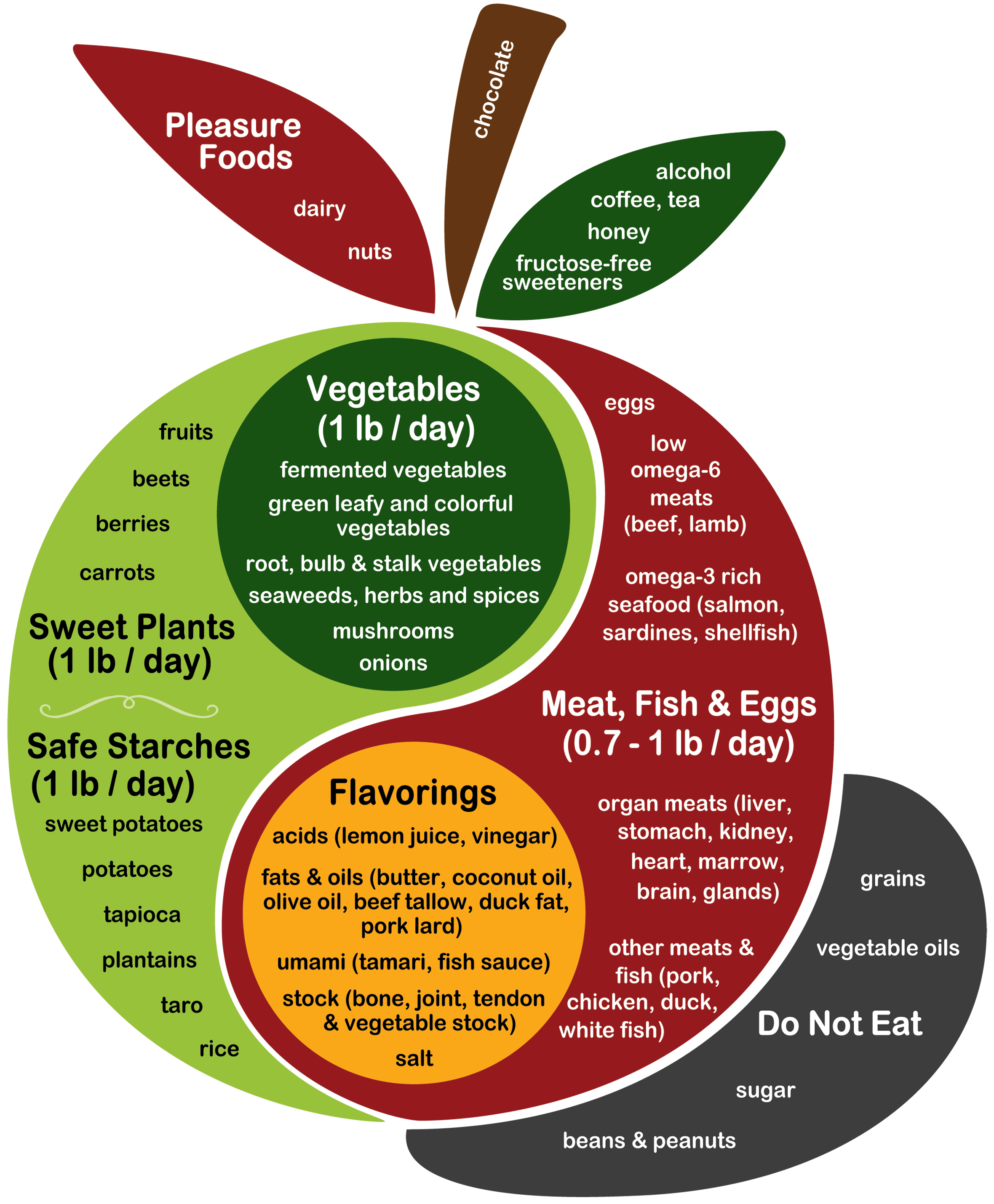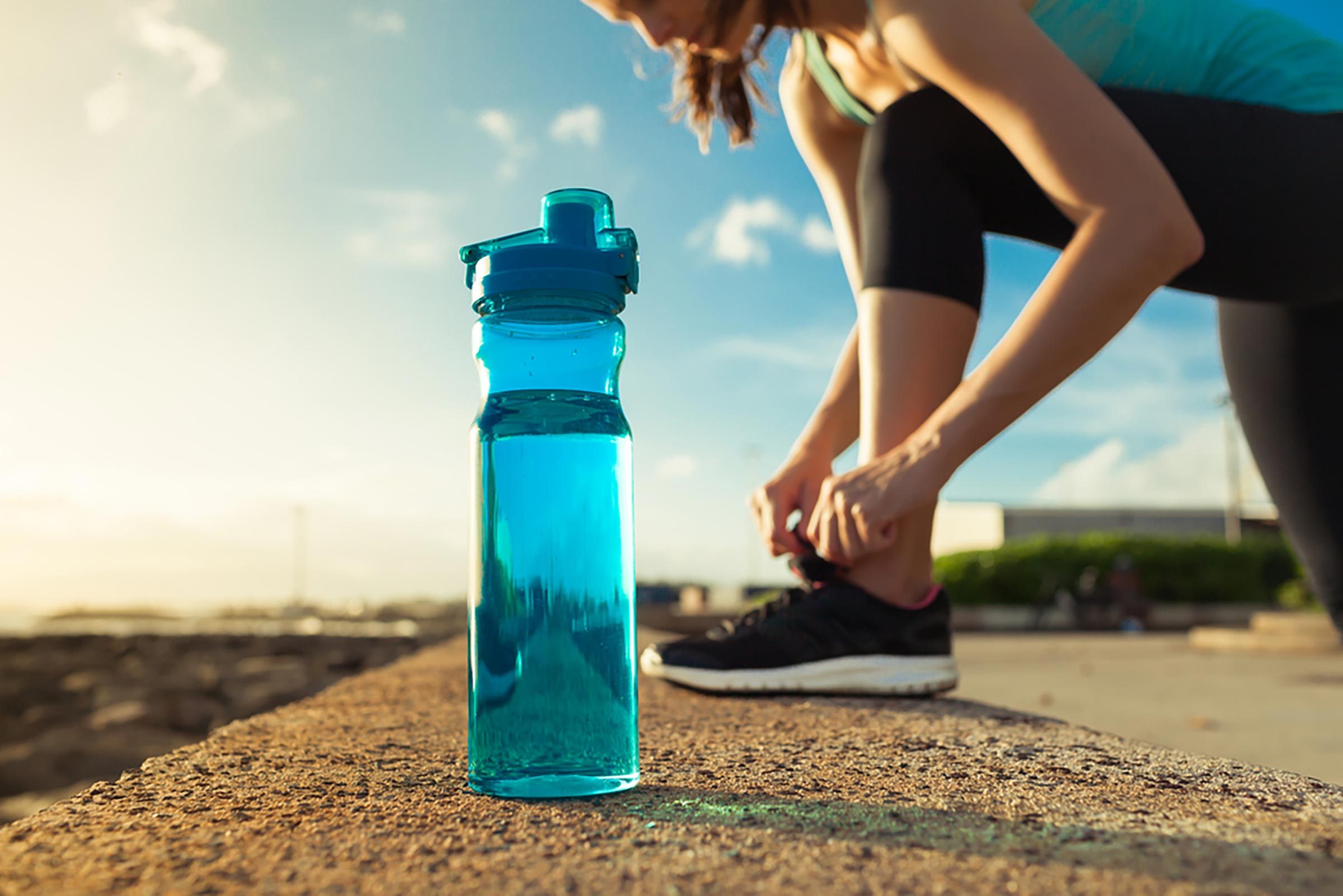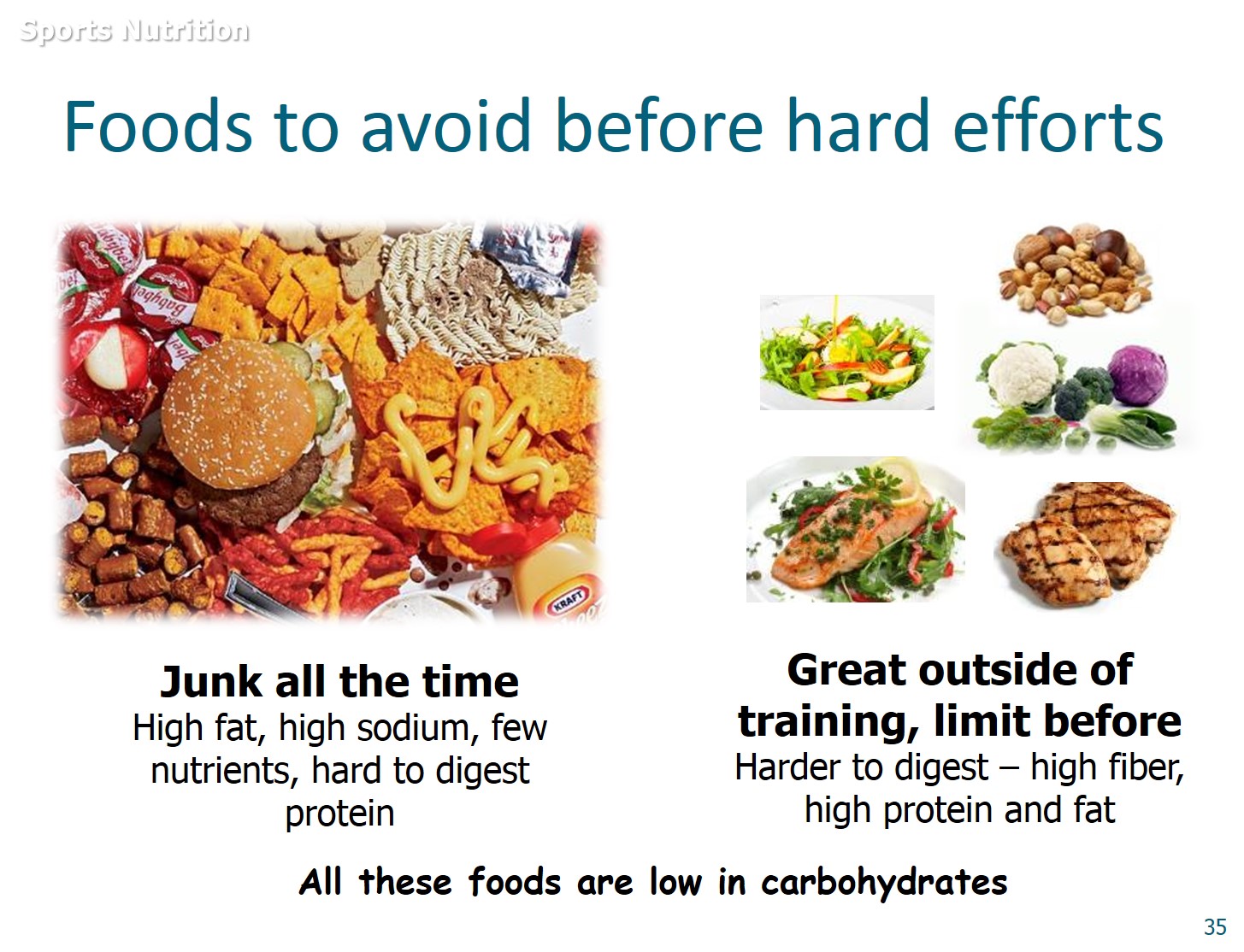
How Maximize Your Effects With The Best Nutrition Before Exercise Can Ease Your Pain
Sunday, December 1, 2019
Edit
Did you change into sportswear today, prepare your equipment, and start exercising immediately? If you're tired, you're already tired and tired, and you probably can't digest all of your plans. It feels like a waste of time today. I want to work harder, but today I have no motivation or energy.
Perhaps everyone has had this experience. Because it's possible. But when you think about sports, you want to minimize the barriers to your best performance. This lack of motivation can be caused by stress or mental and physical fatigue, lack of The Best Nutrition, or various other causes. It may also be an external factor beyond your control or, conversely, an internal factor, such as control over nutrient intake.
All of this is greatly affected by the food you eat throughout the day, so it's important to get the right nutrients you need. Foods you eat especially before exercise can have the greatest impact on your performance. So find out what nutrients and foods are effective before you exercise.

The energy you need to exercise depends on the type of exercise you choose. The energy required for 20 minutes of light exercise is completely different from the energy needed to sustain a high intensity workout for more than an hour.
The goal is to get enough calories for your planned intensity. (If you continue your workout for more than an hour, you will need to replenish your energy in the middle of your workout.) If you do moderate intensity for 20 minutes, you will need approximately 100-200 Kcal. If you exercise longer than this, you need at least 500 Kcal.
Of course, fats and proteins are nutrients that provide energy. But our bodies prefer carbohydrates as their energy source. The reason is that simple carbohydrates are the fastest and most easily digested.
During exercise, our bodies burn the first sugars (simple carbohydrates) in the blood . This is mostly in the form of glucose. The stored carbohydrates (glycogen) then generate energy. Your body will only use fat and protein as energy sources after all of these carbohydrates have been consumed .
The goal of eating foods before or during exercise is to maintain sugar storage. This prevents your body from trying to break down fats and proteins to supply energy. Have you ever felt like you were hit by a wall after one hour of endurance exercise? It is a sign that carbs are depleted.
At this point, we can think, “To get rid of fat, we have to be more patient.” You can, of course, do it to lose weight, but your performance will drop. To achieve the best results, you need to balance your energy with exercise by eating food before exercise. Then it is more effective to write a diet that can help you lose fat.
Foods you eat before exercise, unlike other meals, require less nutrient balance and do not offer a variety of choices. Foods that you eat before exercise should limit your fat, protein, and fiber intake. Therefore, do not eat vegetables, legumes, nuts, seeds, meat or dairy products at this time. Carbohydrates found in fruits, grains and other sweet foods are high in glycemic index , which immediately energizes your body so you can concentrate on exercising. (Please refer to the chart below for the types of food).
For example, vitamin B promotes energy metabolism. Calcium and magnesium strengthen bones. And vitamin C keeps your tendons and muscles healthy.
Lack of essential vitamins or minerals can interfere with achieving your targeted activity. These nutrients may not be enough in your diet alone, so supplementing with a multivitamin / mineral product makes it easy to get your essential micronutrients. These dietary supplements do not have to be taken right before exercise.

Therefore, it is advisable to add a small amount of sodium and potassium to the food you eat before exercising. Then you need to eat extra during the workout.
The amount of electrolyte you need to replenish depends on how much you sweat during exercise. The main component of sweat is salt (sodium chloride). Typical content is 0.5-2.3 g per 1 liter of sweat. This can result in the loss of several grams of salinity per hour of intense exercise.
The intensity of the exercise you are doing and the constitution you are sweating should determine how much salt you need before and during your workout. For the easiest replenishment of salt and other electrolytes, sports drinks are recommended.

Lack of moisture can limit your ability to sweat while exercising. Sweat plays an important role in maintaining body temperature and maximizing athletic performance. In addition, poor water intake can lead to poor concentration. This is especially important for sports that require sophisticated skills such as basketball, tennis, skiing, etc.
Proper fluid intake should occur several hours before exercise. Make it a habit to drink plenty of water just before you exercise, and even while exercising. In adults, you can sweat approximately 1-3 L per hour during exercise. Drink water regularly while you work out to make up for this loss.
A simple way to make sure you are hydrated during exercise is to weigh yourself immediately before and after your workout. At this time, the weight before and after exercise should be about the same. If you have gained weight, you may have run out of fluid before exercise or have drank too much water while exercising. If you have lost weight, try to drink more water while exercising.
But be careful of excessive fluid intake. Drinking too much water can cause abdominal pain. Less water can be replenished after exercise, so avoid excessive intake.

If you've looked closely at sports drinks or pre-workout food labels, you've probably noticed that almost every product contains caffeine. But caffeine is not suitable for everyone. Genes (Depending on the CYP1A2 gene, for some people, caffeine may not work at all or may even impair exercise performance.)
You can also use a genetic test to determine if caffeine is right for you. But this can also be seen through experience. Have you increased your concentration after taking caffeine? Or have you been nervous or distracted by nervousness? We need to pay attention to how our body reacts so that we do not force ourselves to eat ingredients that don't fit.
Caffeine is also present in chocolate, but foods rich in caffeine are tea and coffee. If you are looking for foods with the highest caffeine content, you can use sports drinks, pre-workout foods and supplements.



Did you know that marathoners always eat jam and salt sandwiches during the game? This is because it is the easiest way to replenish calories and electrolytes lost while running.
:max_bytes(150000):strip_icc()/super-easy-bread-for-beginners-428108-14_preview-5aff40a26bf06900366f617b.jpeg)
Bananas, strawberries, blueberries, pineapples and citrus fruits are safe because they have low sugar alcohol. Watermelon, peaches, pears, blackberries, apples, cherries, and prunes are high in sugar alcohol, so eating too much can interfere with your performance.

Sweet foods are high in sugar and low in fat, making them the best pre-workout foods. Jellies and candies are easy to eat before or during exercise.

Now you have a knowledge of good food and how to choose it before you exercise. But the energy supply before and after exercise does not stop here. It is important to continue to eat healthy throughout the day. This begins with the food you eat right after exercise.
After exercising, you should replenish the fluids that may have been lost to sweat. Similarly, energy may need to be replenished. Previous studies have recommended a 3: 1 ratio of carbs and protein within 30 minutes of exercise. Recent studies have shown that eating balanced foods within 2 hours of exercise is enough to replenish your energy reserves and rebuild your muscles.
Unlike before exercise, you do not have to eat foods that are carbohydrate-based. After exercise, it's important to eat a diet that includes protein, healthy fats, fiber, and even vegetables and fruits.
Perhaps everyone has had this experience. Because it's possible. But when you think about sports, you want to minimize the barriers to your best performance. This lack of motivation can be caused by stress or mental and physical fatigue, lack of The Best Nutrition, or various other causes. It may also be an external factor beyond your control or, conversely, an internal factor, such as control over nutrient intake.
All of this is greatly affected by the food you eat throughout the day, so it's important to get the right nutrients you need. Foods you eat especially before exercise can have the greatest impact on your performance. So find out what nutrients and foods are effective before you exercise.

Energy Source:
When choosing food before exercise, the first thing to consider is energy. Exercising while hungry may help you lose weight, but it won't make the most of your performance. In this blog, we'll take a closer look at how to achieve the best athletic performance and how important it is to eat food before exercise.The energy you need to exercise depends on the type of exercise you choose. The energy required for 20 minutes of light exercise is completely different from the energy needed to sustain a high intensity workout for more than an hour.
The goal is to get enough calories for your planned intensity. (If you continue your workout for more than an hour, you will need to replenish your energy in the middle of your workout.) If you do moderate intensity for 20 minutes, you will need approximately 100-200 Kcal. If you exercise longer than this, you need at least 500 Kcal.
The Best Fuel For Energy Is Carbohydrates:
Ever wondered why professional athletes always carry sweet drinks in iceboxes or bottles? Or have you ever wondered why there are so many energy bars, jelly and drinks that contain little nutrients besides sugar? That's because carbohydrates are the king of energy.Of course, fats and proteins are nutrients that provide energy. But our bodies prefer carbohydrates as their energy source. The reason is that simple carbohydrates are the fastest and most easily digested.
During exercise, our bodies burn the first sugars (simple carbohydrates) in the blood . This is mostly in the form of glucose. The stored carbohydrates (glycogen) then generate energy. Your body will only use fat and protein as energy sources after all of these carbohydrates have been consumed .
The goal of eating foods before or during exercise is to maintain sugar storage. This prevents your body from trying to break down fats and proteins to supply energy. Have you ever felt like you were hit by a wall after one hour of endurance exercise? It is a sign that carbs are depleted.
At this point, we can think, “To get rid of fat, we have to be more patient.” You can, of course, do it to lose weight, but your performance will drop. To achieve the best results, you need to balance your energy with exercise by eating food before exercise. Then it is more effective to write a diet that can help you lose fat.
Foods you eat before exercise, unlike other meals, require less nutrient balance and do not offer a variety of choices. Foods that you eat before exercise should limit your fat, protein, and fiber intake. Therefore, do not eat vegetables, legumes, nuts, seeds, meat or dairy products at this time. Carbohydrates found in fruits, grains and other sweet foods are high in glycemic index , which immediately energizes your body so you can concentrate on exercising. (Please refer to the chart below for the types of food).
Micronutrients And Fluid Intake Are Also Important:
Because athletic performance isn't perfect with energy alone. Essential micronutrients play an important role in athletic performance as well as health.For example, vitamin B promotes energy metabolism. Calcium and magnesium strengthen bones. And vitamin C keeps your tendons and muscles healthy.
Lack of essential vitamins or minerals can interfere with achieving your targeted activity. These nutrients may not be enough in your diet alone, so supplementing with a multivitamin / mineral product makes it easy to get your essential micronutrients. These dietary supplements do not have to be taken right before exercise.

Electrolytes:
Electrolytes are also essential nutrients. This nutrient requires more than other micronutrients, especially when exercising. Sodium and potassium are electrolytes that help muscles contract. Lack of these nutrients can easily cause muscle spasms, which can interfere with exercise.Therefore, it is advisable to add a small amount of sodium and potassium to the food you eat before exercising. Then you need to eat extra during the workout.
The amount of electrolyte you need to replenish depends on how much you sweat during exercise. The main component of sweat is salt (sodium chloride). Typical content is 0.5-2.3 g per 1 liter of sweat. This can result in the loss of several grams of salinity per hour of intense exercise.
The intensity of the exercise you are doing and the constitution you are sweating should determine how much salt you need before and during your workout. For the easiest replenishment of salt and other electrolytes, sports drinks are recommended.

Hydration:
Water is an essential element in digesting foods eaten before exercise. Water is also essential for a smooth blood supply, ensuring that our bodies have an even supply of oxygen, sugar and other essential nutrients. It is also indispensable for muscle contraction.Lack of moisture can limit your ability to sweat while exercising. Sweat plays an important role in maintaining body temperature and maximizing athletic performance. In addition, poor water intake can lead to poor concentration. This is especially important for sports that require sophisticated skills such as basketball, tennis, skiing, etc.
Proper fluid intake should occur several hours before exercise. Make it a habit to drink plenty of water just before you exercise, and even while exercising. In adults, you can sweat approximately 1-3 L per hour during exercise. Drink water regularly while you work out to make up for this loss.
A simple way to make sure you are hydrated during exercise is to weigh yourself immediately before and after your workout. At this time, the weight before and after exercise should be about the same. If you have gained weight, you may have run out of fluid before exercise or have drank too much water while exercising. If you have lost weight, try to drink more water while exercising.
But be careful of excessive fluid intake. Drinking too much water can cause abdominal pain. Less water can be replenished after exercise, so avoid excessive intake.

What About Caffeine?
Some nutrients benefit from exercising, but can be difficult to consume as food. Caffeine is one of them. This stimulant helps reduce fatigue and drowsiness, which can help improve athletic performance.If you've looked closely at sports drinks or pre-workout food labels, you've probably noticed that almost every product contains caffeine. But caffeine is not suitable for everyone. Genes (Depending on the CYP1A2 gene, for some people, caffeine may not work at all or may even impair exercise performance.)
You can also use a genetic test to determine if caffeine is right for you. But this can also be seen through experience. Have you increased your concentration after taking caffeine? Or have you been nervous or distracted by nervousness? We need to pay attention to how our body reacts so that we do not force ourselves to eat ingredients that don't fit.
Caffeine is also present in chocolate, but foods rich in caffeine are tea and coffee. If you are looking for foods with the highest caffeine content, you can use sports drinks, pre-workout foods and supplements.

Good Food To Eat Before Exercise:
There are a myriad of good foods to eat before exercising. In the next section, we will use the health information above to find out what foods to eat before exercise. Foods eaten before exercise are recommended to be eaten 45-60 minutes before starting exercise. Regardless of the type of food, try different options and find the one that works best for you.
Oatmeal:
Instant oatmeal is a food rich in carbohydrates. One serving is approximately 150 Kcal. If you need more calories, you can choose flavored oatmeal or add fruit. Oatmeal is also rich in fiber, which can be uncomfortable because eating too much slows down digestion.
Bread:
The bread can be eaten as it is, or made from toast or sandwiches. Adding jams and jelly, a monosaccharide, can help you burn calories easily. White bread has less fiber and is easier to digest than whole wheat bread. Peanut butter or regular butter is high in fat and can interfere with digestion.Did you know that marathoners always eat jam and salt sandwiches during the game? This is because it is the easiest way to replenish calories and electrolytes lost while running.
:max_bytes(150000):strip_icc()/super-easy-bread-for-beginners-428108-14_preview-5aff40a26bf06900366f617b.jpeg)
Fruit:
Eating dried or fresh fruit is a great way to energize and replenish micronutrients during exercise. But fruit selection must be done with care. Because some fruits are rich in sugar alcohol, they can act as a laxative by causing bloating and gas. This is probably the most unwanted phenomenon when exercising.Bananas, strawberries, blueberries, pineapples and citrus fruits are safe because they have low sugar alcohol. Watermelon, peaches, pears, blackberries, apples, cherries, and prunes are high in sugar alcohol, so eating too much can interfere with your performance.

Coffee:
For those who help caffeine improve their performance, coffee is a good pre-workout food. You can add a little sugar to your coffee and take it with other pre-workouts to get all the calories you need for your workout.Sweet Food:
You can eat as much as you like before you exercise. If you've had delicious chocolate or chocolate that's hard to resist at home, this is your chance. Use these foods as fuel for exercise, rather than just before going to bed or watching TV.Sweet foods are high in sugar and low in fat, making them the best pre-workout foods. Jellies and candies are easy to eat before or during exercise.

Good Food To Eat After Exercise:
Now you have a knowledge of good food and how to choose it before you exercise. But the energy supply before and after exercise does not stop here. It is important to continue to eat healthy throughout the day. This begins with the food you eat right after exercise.
After exercising, you should replenish the fluids that may have been lost to sweat. Similarly, energy may need to be replenished. Previous studies have recommended a 3: 1 ratio of carbs and protein within 30 minutes of exercise. Recent studies have shown that eating balanced foods within 2 hours of exercise is enough to replenish your energy reserves and rebuild your muscles.
Unlike before exercise, you do not have to eat foods that are carbohydrate-based. After exercise, it's important to eat a diet that includes protein, healthy fats, fiber, and even vegetables and fruits.